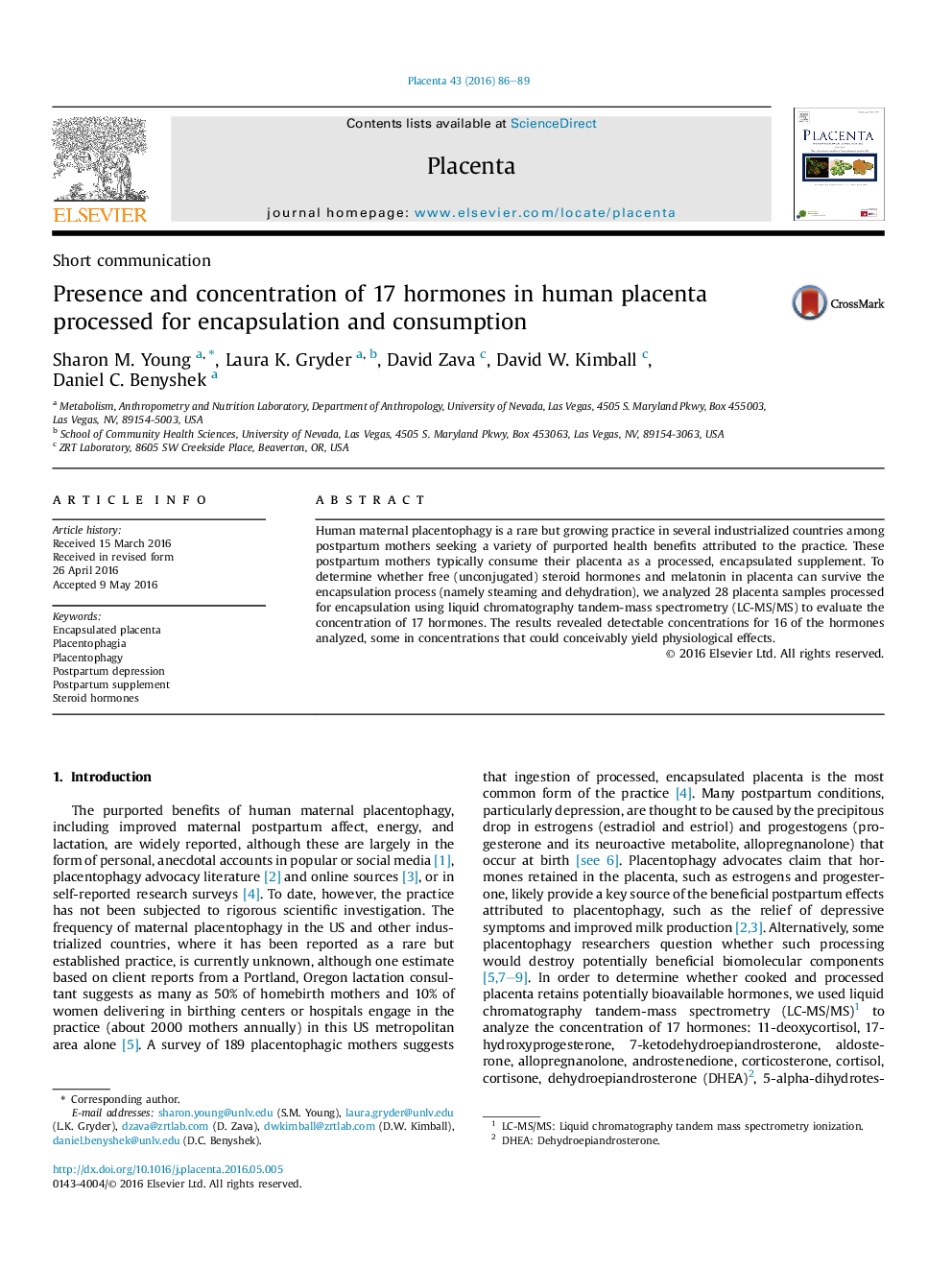| Article ID | Journal | Published Year | Pages | File Type |
|---|---|---|---|---|
| 2788383 | Placenta | 2016 | 4 Pages |
•Twenty-eight samples of human placenta processed for encapsulation were analyzed.•Concentrations of 16 steroids and melatonin were determined in these samples.•The estimated daily intake in placenta capsules was calculated for each hormone.•Concentrations of many hormones are relatively low.•Some estrogens and progestogens may reach physiological effect thresholds.
Human maternal placentophagy is a rare but growing practice in several industrialized countries among postpartum mothers seeking a variety of purported health benefits attributed to the practice. These postpartum mothers typically consume their placenta as a processed, encapsulated supplement. To determine whether free (unconjugated) steroid hormones and melatonin in placenta can survive the encapsulation process (namely steaming and dehydration), we analyzed 28 placenta samples processed for encapsulation using liquid chromatography tandem-mass spectrometry (LC-MS/MS) to evaluate the concentration of 17 hormones. The results revealed detectable concentrations for 16 of the hormones analyzed, some in concentrations that could conceivably yield physiological effects.
